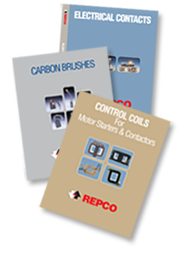American Independence Day is officially celebrated on July 4, the day that the Second Continental Congress ratified the Declaration of Independence in 1776. It was a momentous act of rebellion against George III, but open warfare had already begun more than a year before, ushered in when Paul Revere and two friends swiftly acted to warn their fellow Sons of Liberty and rebels that British troops were on the move.
The Sons of Liberty were a loosely organized secret group aimed at destabilizing British rule over the American colonies and intimidating the people loyal to the them. They had operated for at least 10 years, mobilizing in 1765 to oppose the Stamp Act, a tax on documents that the British Parliament repealed after a year of fierce opposition. But, by 1773, the British and the colonists in America were close to war when the Sons dumped 92,000 pounds of tea in Boston Harbor, an act known today as the Boston Tea Party. By April 1775, the British had had enough and were sending troops to take the guns from rebels, seize gunpowder and arrest the leaders of the Sons, Samuel Adams and John Hancock.
On the evening of April 18, 1775, Dr. Joseph Warren contacted his friend Paul Revere and instructed him to ride from Boston to Lexington, Mass., to warn the Sons that British troops were coming by water. Revere was to take up the alarm, alerting colonists around Boston of the impending threat.
Days before, he had contacted a friend, most likely the sexton of Boston's Old North Church, to signal when British troop movements were known by putting a lantern in the steeple of the church. Famously: One if by land and two if by sea. Fellow Sons of Liberty across the Charles River would be waiting to know if the British planned to row "by sea" across the river to Cambridge.
Two friends rowed Revere across the river to Charlestown, where he snuck past a British warship in the darkness and mounted a borrowed horse for his famous midnight ride. The munitions were saved from British seizure and the next day, an unknown soldier fired the "shot heard round the world" that began the Battles of Lexington and Concord -- the first battle of the American Revolution.
Paul Revere, accompanied by at least three other riders, successfully raised the alarm and mobilized the local militia. His ride became famous much later, though, in the famed 1861 poem by Henry Wadsworth Longfellow whose fictionalized version made Revere a star. According to the poem, Revere shouted "The British are coming!" but, in fact, he shouted the more prosaic "The Regulars are coming!"

- Electrical Contacts
Electrical Contacts
- Carbon Brushes
Carbon Brushes : Brush Reference
- Control Coils
Control Coils
- Other Contactor Parts
- More
- Search
- Auxiliary Contacts
Auxiliary Contacts
- Shunts
Shunts
- Springs
Springs
- AC Contactors & Starters
AC Contactors & Starters
- DC Contactors
DC Contactors
- Fuses
Article 1 (Jun 2022): One if by land, Two if by sea: the famous ride of Paul Revere
June 27, 2022
« Return To Articles
Quick Contact
Newsletter Signup
Join our email list and we will keep you informed of sales and promotions and other great deals!
Email SubscribeRequest Literature
Request our Electrical Contact, Carbon Brush, or Control Coil catalogs (via Mail).
Request NowLiterature Request Or Download
Request our Electrical Contact, Carbon Brush, or Control Coil catalogs. Or download PDFs or browse them online.
Choose

Repco
100 Sonwil Drive
Buffalo NY 14225 - Carbon Brushes